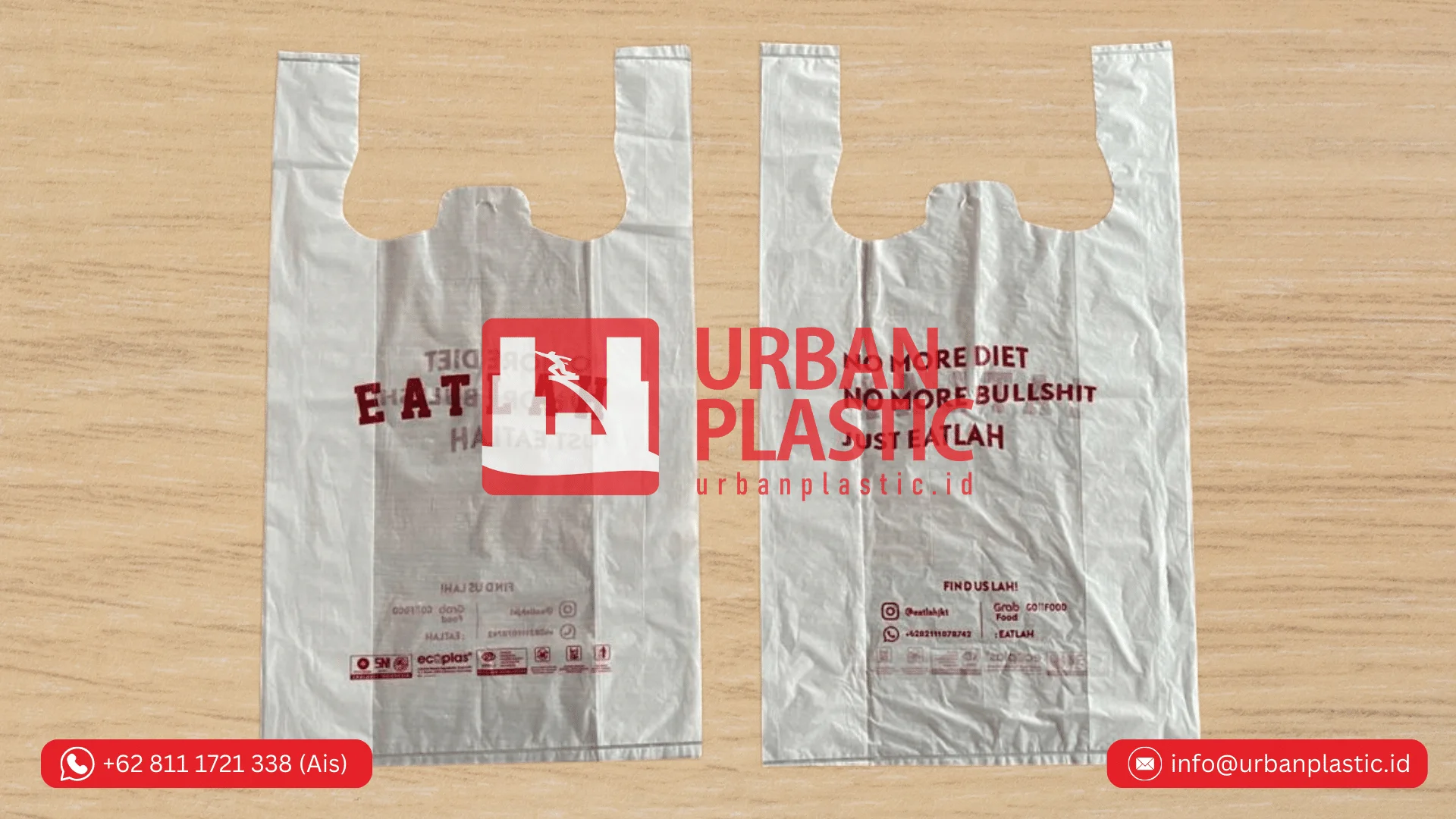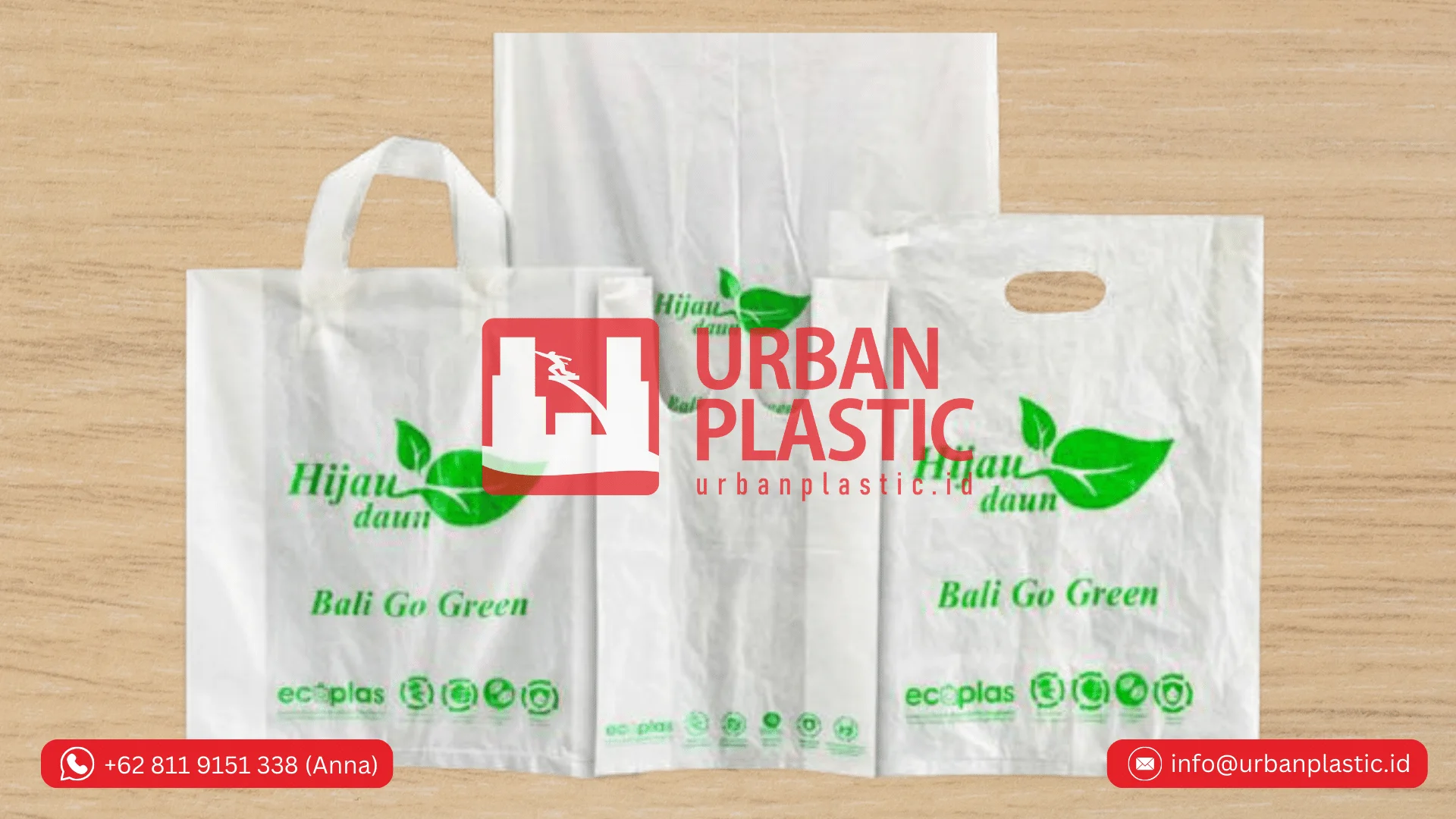In a world where plastic pollution is a growing concern, one innovative company is leading the way in sustainable packaging solutions. Meet EcoPlast, a cassava plastic manufacturer based in Indonesia, revolutionizing the packaging industry with their eco-friendly alternatives.
Driven by the belief that businesses have a responsibility to reduce their environmental impact, EcoPlast has developed a groundbreaking process that transforms cassava, a root vegetable widely grown in Indonesia, into biodegradable plastic. This innovative approach provides a viable solution to the global plastic waste crisis, as cassava-based plastics naturally break down within months, instead of hundreds of years like traditional plastics.
Not only does EcoPlast’s cassava plastic contribute to a greener future, but it also offers the same functionality and durability as conventional plastics. Their products are versatile and can be used for various packaging applications, ranging from food containers to consumer goods.
By incorporating EcoPlast’s cassava plastic into their packaging solutions, businesses can proudly demonstrate their commitment to sustainability and be part of the shift towards a circular economy. Join the movement towards a cleaner, greener planet with EcoPlast and help shape the future of packaging.


The Environmental Impact of Traditional Plastic Packaging
Traditional plastic packaging has had a devastating impact on the environment. The production of conventional plastics involves the extraction of fossil fuels, such as crude oil or natural gas, which contributes to greenhouse gas emissions and the depletion of finite resources. Additionally, the disposal of plastic waste, particularly single-use plastics, has led to overflowing landfills and widespread pollution of our oceans and ecosystems. The slow decomposition rate of traditional plastics, which can take hundreds of years, means that the environmental impact is long-lasting.
The Process of Manufacturing Cassava Plastic
EcoPlast’s innovative process of manufacturing cassava plastic begins with the cultivation of cassava plants. Cassava is a root vegetable that thrives in Indonesia’s tropical climate and is widely grown by local farmers. The harvested cassava roots undergo a series of processing steps, including washing, peeling, and grinding, to extract the starch.
Once the starch is extracted, it is mixed with other natural ingredients, such as vegetable oils and organic additives, to enhance the plastic’s durability and flexibility. The resulting mixture is then transformed into pellets or sheets, which can be molded into different shapes and sizes to meet various packaging requirements. This manufacturing process is not only environmentally friendly but also economically viable, as cassava is an abundant and low-cost raw material.
Case Study: Cassava Plastic Manufacturer in Indonesia
EcoPlast, the leading cassava plastic manufacturer in Indonesia, has successfully implemented their sustainable packaging solutions in collaboration with local farmers and businesses. By partnering with farmers, EcoPlast ensures a steady supply of cassava roots, creating a mutually beneficial relationship that supports local communities and promotes sustainable agriculture.
Through their extensive research and development efforts, EcoPlast has been able to produce cassava-based plastics that meet international quality standards. Their products have gained recognition both domestically and globally, attracting attention from environmentally conscious consumers and businesses seeking eco-friendly alternatives.
Success Stories and Market Penetration of Cassava Plastic
As the demand for sustainable packaging increases, cassava plastic has gained significant traction in the market. Many businesses, ranging from small enterprises to multinational corporations, have embraced cassava plastic as a viable alternative to traditional plastics. By incorporating cassava plastic into their packaging strategies, these businesses not only reduce their environmental impact but also appeal to eco-conscious consumers who prioritize sustainability.
In addition to its environmental benefits, cassava plastic offers unique marketing opportunities for brands. Businesses that adopt cassava plastic can proudly communicate their commitment to sustainability, differentiating themselves from competitors and building a positive brand image. This has led to increased market penetration and consumer loyalty for companies that have made the switch to cassava plastic packaging.
Challenges and Limitations of Cassava Plastic
While cassava plastic offers a promising solution to the plastic waste crisis, it is not without its challenges and limitations. One of the primary challenges is scaling up production to meet the growing demand for sustainable packaging. As cassava is a seasonal crop, ensuring a year-round supply of cassava roots can be a logistical challenge. Additionally, optimizing the manufacturing process to improve efficiency and reduce costs remains an ongoing endeavor for cassava plastic manufacturers.
Another limitation of cassava plastic is its vulnerability to moisture. Unlike traditional plastics, cassava plastic has a shorter shelf life and can degrade when exposed to high humidity or water. This makes it less suitable for certain applications, such as packaging liquids or products that require extended shelf life. However, ongoing research and development efforts aim to address these limitations and improve the performance of cassava plastic in various packaging scenarios.
The Future of Cassava Plastic and Its Potential in the Packaging Industry
The future of cassava plastic looks promising, as more businesses recognize the importance of sustainable packaging and seek alternatives to traditional plastics. With advancements in technology and increased investment in research and development, the performance and versatility of cassava plastic are expected to improve, making it a viable choice for a wider range of packaging applications.
Cassava plastic also has the potential to contribute to the circular economy by enabling the creation of a closed-loop system for packaging materials. As cassava-based plastics naturally degrade, they can be composted or used as a renewable energy source, minimizing waste and reducing reliance on fossil fuel-based plastics.
How Businesses Can Incorporate Cassava Plastic in Their Packaging Strategies
Businesses looking to incorporate cassava plastic into their packaging strategies can take several steps to ensure a successful transition. Firstly, conducting a thorough assessment of their packaging needs and identifying suitable applications for cassava plastic is crucial. Understanding the limitations and benefits of cassava plastic will help businesses make informed decisions about its integration into their supply chains.
Collaborating with cassava plastic manufacturers, like EcoPlast, can provide businesses with the necessary expertise and support throughout the implementation process. By partnering with manufacturers, businesses can ensure a reliable supply of cassava plastic and access the latest innovations in sustainable packaging.
Furthermore, educating consumers about the benefits of cassava plastic and sustainability initiatives can foster a sense of shared responsibility and encourage consumer support for businesses that prioritize environmental stewardship. Transparent communication about the use of cassava plastic and its positive impact on the environment can help build trust and loyalty among eco-conscious consumers.
Conclusion: Embracing Sustainable Solutions for a Greener Future
The rise of cassava plastic as a sustainable alternative to traditional plastics marks a significant step towards a greener future. EcoPlast, the cassava plastic manufacturer in Indonesia, has demonstrated the viability and potential of this eco-friendly material, revolutionizing the packaging industry.
By embracing cassava plastic, businesses can reduce their environmental impact and contribute to the global effort to combat plastic pollution. As consumers become increasingly aware of the environmental consequences of traditional plastics, the demand for sustainable packaging solutions will continue to grow. The time to adopt cassava plastic and shape the future of packaging is now. Together, we can build a cleaner, greener planet for future generations.
For more information about cassava bag please contact: Whatsapp/Mobile Phone: +62 811 1721 338 (Ms. Ais) or Email : [email protected].

